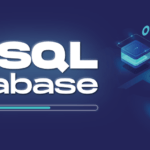Databases are an essential part of any website or application, as they store and manage critical data that powers these digital platforms. However, managing databases can be a complex and challenging task, especially when it comes to optimizing them for search engines. In this expert guide, we’ll cover the key principles of database management and how to implement them to improve your SEO efforts.
1. Understanding Database Structure
- The first step to mastering database management is to have a solid understanding of the structure of a database. A database is essentially a collection of tables, columns, and rows that store and organize information. It is crucial to have a well-structured database as it can greatly affect the performance and efficiency of your website or application. Poorly structured databases can lead to slow load times, errors, and a negative user experience.
2. Indexing and Optimization
- Indexing is the process of creating a system that allows search engines to quickly find and retrieve information from your database. By indexing your database, you can improve your website’s search engine ranking and ensure that your content is easily accessible to both users and search engines.
When it comes to optimization, it is important to consider factors such as page speed, mobile responsiveness, and the overall user experience. A well-optimized database can improve the performance of your website and provide a positive user experience, which is crucial for improving your SEO efforts.
3. Keyword Targeting
- Keyword targeting is another important aspect of database management and SEO. By incorporating relevant keywords into your database, you can improve your website’s search engine ranking and make it easier for users to find your content.
When choosing keywords, it’s important to consider the relevance and popularity of the keywords in your industry. You can use keyword research tools to identify the best keywords to target and track your progress over time.
4. Regular Maintenance
- Regular maintenance is essential for keeping your database running smoothly and efficiently. This includes tasks such as removing duplicates, updating data, and fixing broken links. By regularly maintaining your database, you can ensure that it remains optimized for search engines and provides a positive user experience.
Neglecting database maintenance can lead to a range of problems, including slow load times, broken links, and errors. By regularly monitoring and maintaining your database, you can ensure that it remains optimized and provides a positive user experience.
In conclusion, mastering database management is an essential component of any successful SEO strategy. By understanding the structure of a database, indexing and optimizing your content, targeting keywords, and regularly maintaining your database, you can improve your website’s search engine ranking and provide a positive user experience. With this expert guide, you now have the tools and knowledge to master database management and take your SEO efforts to the next level.





